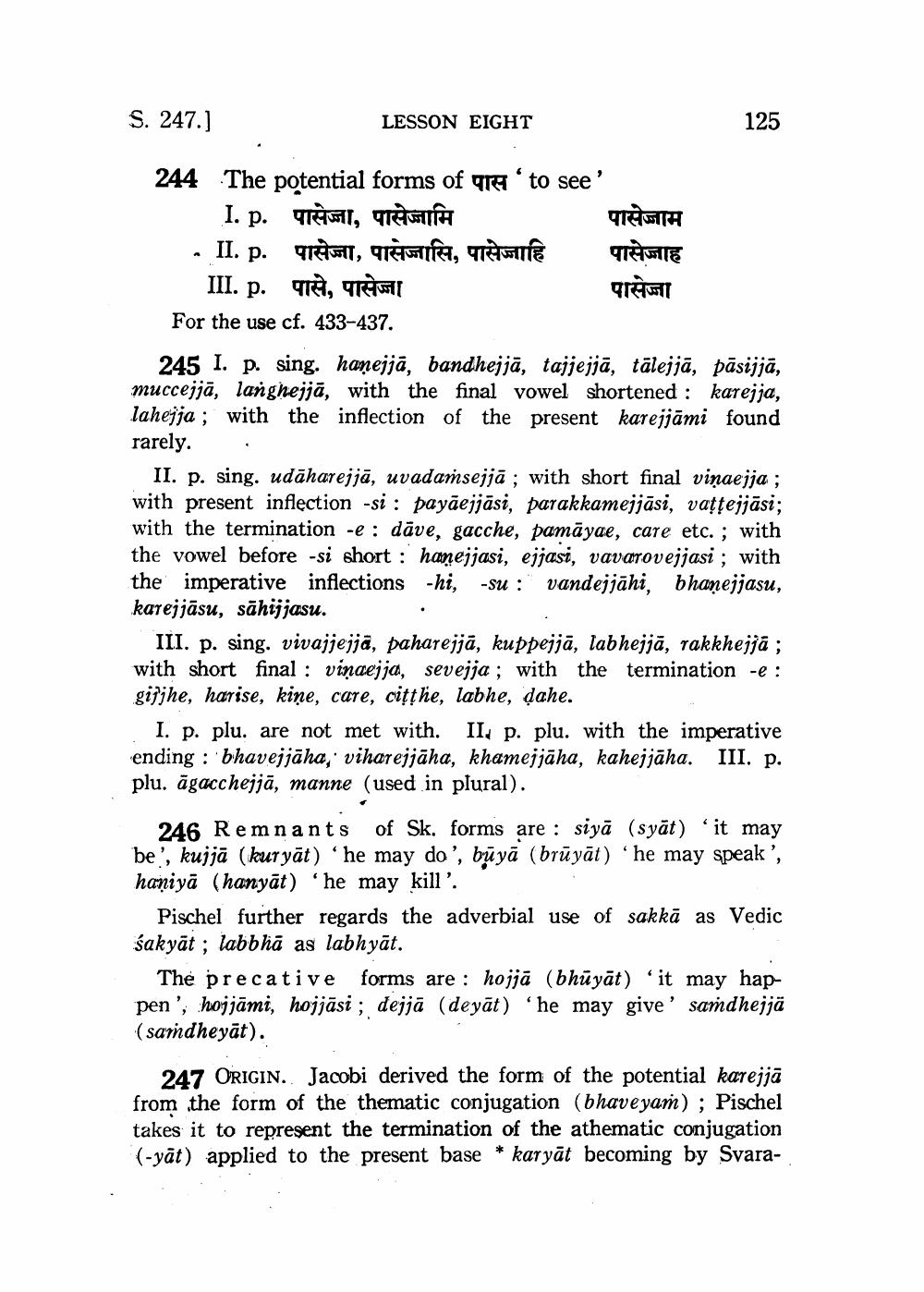________________
S. 247.]
LESSON EIGHT
125
244 The potential forms of qre to see' I. p. TGT, TTSTIH
पासेजाम II. p. HIT, TESTIRA, TAHIRE पासेज्जाह III. p. 9, RTG
पासेजा For the use cf. 433-437.
245 I. p. sing. hanejjā, bandhejjā, tajjejjā, tālejjā, pāsijjā, muccejjā, langhejjā, with the final vowel shortened : karejja, lahejja ; with the inflection of the present karejjāmi found rarely. .
II. p. sing. udāharejjā, uvadarsejjā ; with short final vinaejja ; with present inflection -si : payāejjāsi, parakkamejjāsi, vattejjasi; with the termination -e: dāve, gacche, pamāyae, care etc. ; with the vowel before -si short : hanejjasi, ejjasi, vavarovejjasi ; with the imperative inflections -hi, -su :' vandejjāhi, bhanejjasu, karejjāsu, sāhijjasu.
III. p. sing. vivajjejja, paharejjā, kuppejjā, labhejjā, rakkhejjā; with short final : viņaejja, sevejja ; with the termination -e: gijjhe, harise, kine, care, citthe, labhe, dahe.
I. p. plu. are not met with. II. p. plu. with the imperative ending : bhavejjāha, viharejjāha, khamejjäha, kahejjāha. III. p. plu. ágacchejjā, manne (used in plural).
246 Remnants of Sk, forms are : siyā (syāt) it may be', kujjā (kuryāt) ‘he may do', būyā (brūyāt) he may speak ', haniyā (hanyāt) 'he may kill'.
Pischel further regards the adverbial use of sakkā as Vedic sakyāt ; labbhā as labhyāt.
The precative forms are : hojjā (bhūyāt) 'it may happen', hojjāmi, hojjāsi ; dejjā (deyāt) 'he may give' sardhejja (sardheyāt).
247 ORIGIN. Jacobi derived the form of the potential karejjā from the form of the thematic conjugation (bhaveyam) ; Pischel takes it to represent the termination of the athematic conjugation (-yāt) applied to the present base * karyāt becoming by Svara




